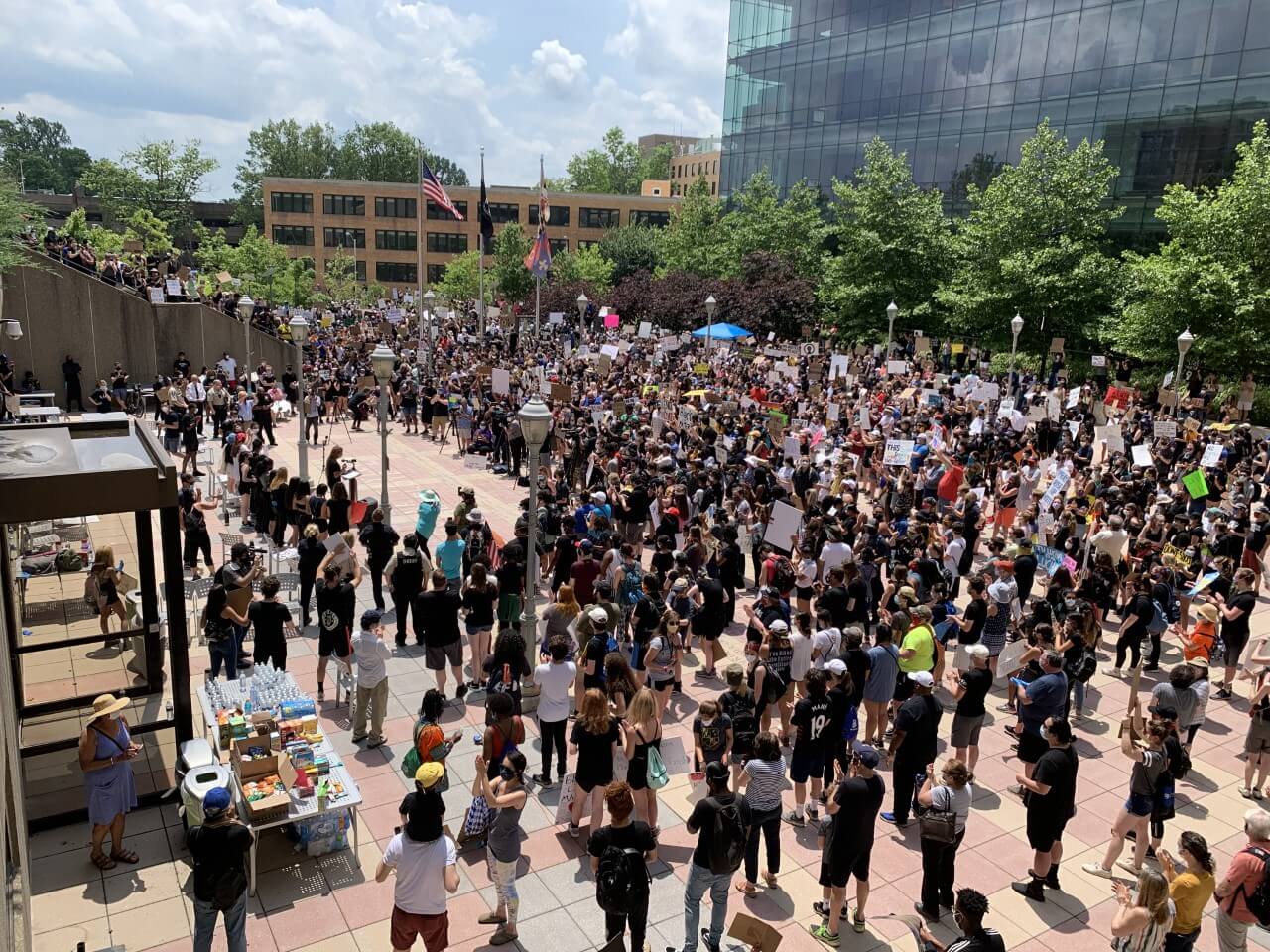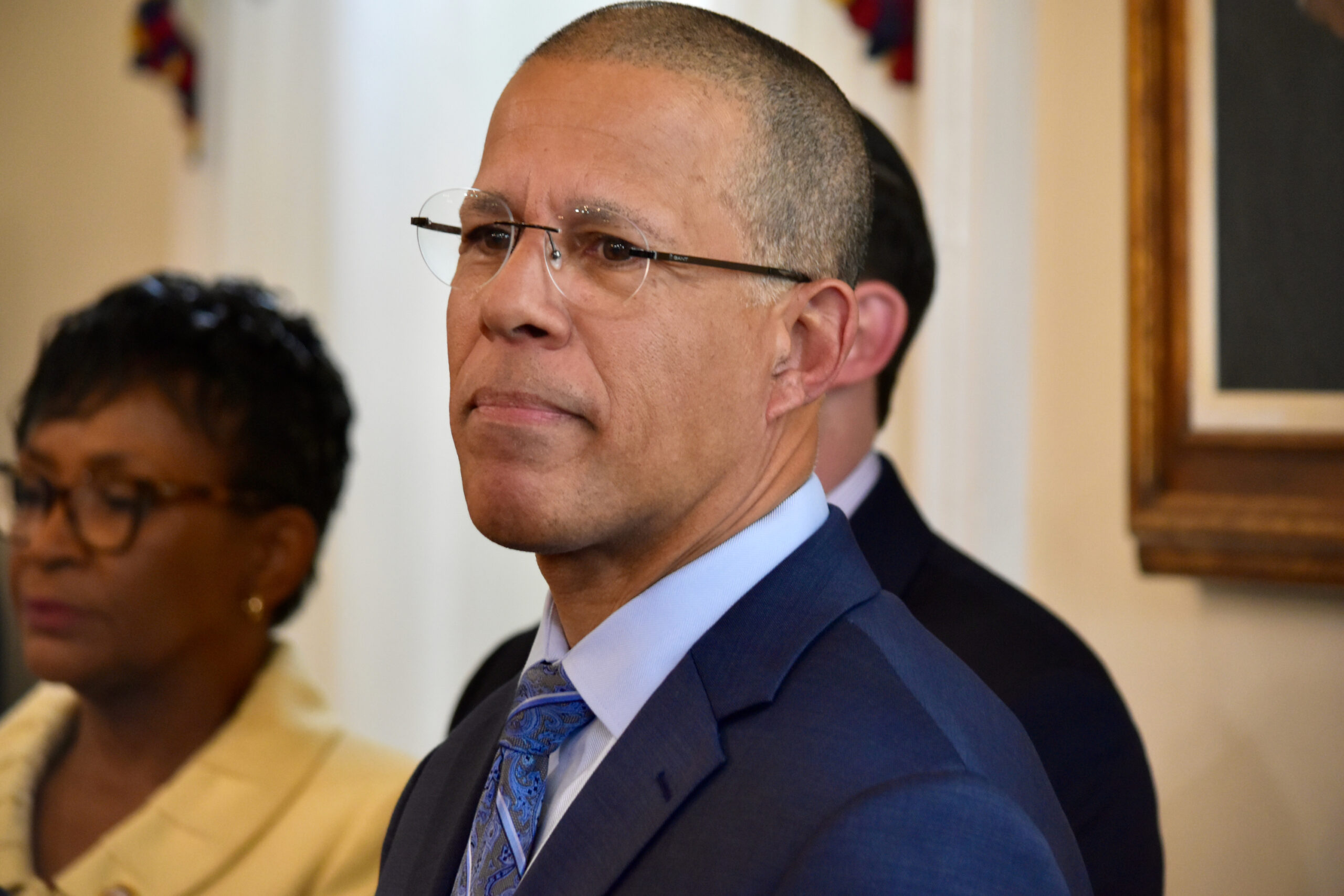Frosh: Virus’ Unequal Devastation in Communities of Color Must Guide the Response

As we lead the world in COVID-19 victims, we’re also watching a second tragedy unfold: the pandemic’s disproportionate impact on people of color. And the death of George Floyd, the latest in a searing number of African-Americans killed in horrifying acts of police brutality, has provided more agonizing proof of the systemic racism that permeates American life.
As we undertake the urgent work of police reform to stop these killings, we must also recognize their link to the racially disparate impacts of COVID-19. It will take years to understand all that went wrong in our pandemic response, but the unequal devastation it wrought in communities of color must be front and center in our search for solutions. And we must begin now — neither the moral imperative to prevent future killings nor the next pandemic will wait.
Here’s what we know. Many hit hardest by COVID-19 work on the front lines, live in government custody or congregate care, and are disproportionately people of color. We have failed them, falling short in addressing these inequities. Thus, we must act immediately on three fronts: increasing government transparency and accountability; strengthening essential worker protections; and attacking racial disparities brought into stark relief by both the pandemic and the deaths of George Floyd, Rayshard Brooks, Breonna Taylor, Ahmaud Arbery, and so many more.

Maryland Attorney General Brian E. Frosh (D). File photo
First, information critical to effective crisis response and resource allocation has been hard to obtain. We were not told early enough about the threat. As states undertook frantic quests for supplies, the Trump administration provided little transparency into erratic decisions about distributing resources.
As infections ravaged nursing homes — 32,000 deaths and counting — government was slow to require testing and, as we’ve seen in Maryland, reporting has been flawed. With prisons emerging as hotbeds, leaders provided sparse information. We remained badly informed about the plight of frontline workers in poultry plants and elsewhere, as insufficient disclosure about infections built anxiety, and fear of retaliation kept many silent.
Second, workers essential to our well-being have suffered disproportionately, with too little done to protect them. They bear personal risk caring for the elderly and sick, harvesting crops, collecting trash, carrying mail, checking out groceries, cleaning hospitals, and making deliveries to people’s homes.
This burden falls more heavily on people of color. Nearly 25% of African-American and Latinx workers are in service jobs, compared to 16% of whites. Thirty percent of nurses are African-American and 53% of agricultural workers are Latinx. Frontline employees often lack paid sick leave and safety protections, working without PPE, testing, or social distancing accommodations. And, we don’t pay them enough.
Third, rates of infection and death are higher in communities of color. African-Americans make up 31% of Marylanders but 42% of COVID-19 deaths. Latinx residents account for 10% of Maryland’s population but 26% of infections.
These disparities also exist in prisons, where detainees are disproportionately people of color, and few states provide racial breakdowns of COVID-19 victims. So too in nursing homes — where Maryland’s infection rates are among the highest nationwide and account for more than half the State’s deaths — COVID-19’s uneven grip means facilities with more residents of color are twice as likely to suffer outbreaks.
COVID-19’s economic hardship has also fallen disproportionately on people of color. Although job loss has hit many Americans hard, low-income households have suffered most, and unemployment rates for African-American and Latinx workers are 16.8% and 17.6%, compared to 12.4% for whites.
The reasons for these disparities are many: unequal access and bias in health care; high rates of underlying health conditions; crowded housing conditions and greater exposure to environmental hazards; and life-long effects of systemic racism. A person of color in America begins with disadvantages that often intensify throughout life, including final years in a nursing home.
Our challenges are clear. First, we must hold government accountable for truth and transparency. Leaders must not withhold information or grab headlines by trumpeting solutions without action.
We must also hold custodial institutions accountable. Data and transparency are necessary to make effective policy that combats bias and protects imperiled communities. What are the ages, race/ethnicity, and gender of nursing home residents, detainees, and workers being tested? How many have PPE? What are the demographics of COVID-19 victims?
Second, we must end the hypocrisy of deeming workers essential without giving them adequate protections and compensation. Government leaders must craft — and ensure robust enforcement of — standards that will keep safe those who provide services that safeguard the rest of us.
Finally, we must demand long-overdue action to eradicate the roots of disproportionate suffering in communities of color. If this pandemic — and the anguished swell of Black Lives Matter protests — fail to galvanize an unyielding commitment to right the appalling wrongs of systemic racism, then shame on us. Before the next pandemic or unjust killing, let us finally erase this enduring stain and make real the changes needed to begin the healing.
— BRIAN E. FROSH
The writer, a Democrat, is the Attorney General of Maryland.




 Creative Commons Attribution
Creative Commons Attribution